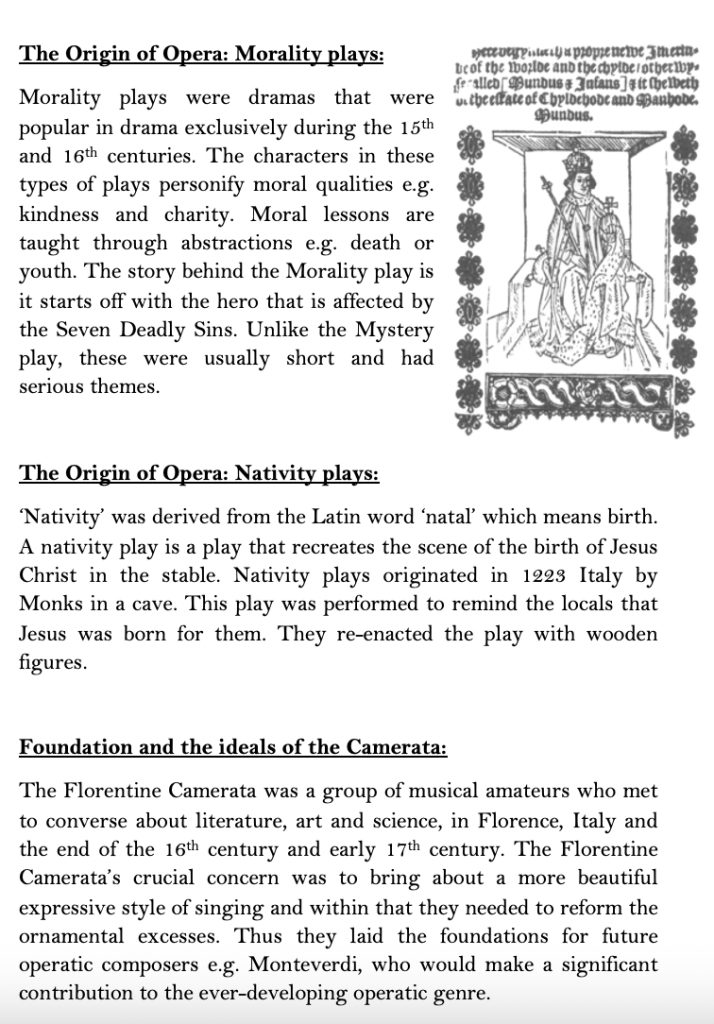The Historical Evolution of Opera
Summary:
The historical development of opera is a fascinating journey that intertwines with the evolution of other theatrical genres. Opera is a theatrical performance combining costumes, drama, music, singing, and poetry, performed in opera houses with orchestral accompaniment. Its origin can be traced back to 16th-century Italy, with the first opera titled “Dafne,” created to revive classical Greek drama during the Renaissance movement.
Early opera drew inspiration from Greek and Roman mythology, featuring characters and plots from ancient stories. Greek fertility festivals influenced the continuation of Greek drama, with the chorus playing a significant role, representing the voice of the audience on stage. As time progressed, mystery plays, morality plays, and nativity plays emerged as other forms of vernacular drama during the Middle Ages.
The Florentine Camerata, a group of musical enthusiasts in the late 16th and early 17th centuries, aimed to reform polyphonic music and revive Greek dramatic style. This led to the creation of stile recitativo, a musical speech used in opera for narration and dialogue.
Key early operas and their composers include Claudio Monteverdi’s “L’Orfeo” and “II ritorno d’Ulisse in partia,” Francesco Cavalli’s “Ormindo” and “Giasone,” and Henry Purcell’s “Dido and Aeneas.” Monteverdi is considered one of the first opera geniuses, bridging the gap between early Renaissance polyphony and the basso continuo technique characteristic of the Baroque period.
Excerpt:
The Historical Evolution of Opera
In Early Opera, mostly all characters were taken from Ancient Greek and Roman mythology and many consist of the same plots. Greek fertility festivals were the reason for the continuation of Greek drama. These fertility festivals were a plea to the god to allow life to continue into the next year and to also honour and thank this god for the blessing that he had already given. A crucial part of Greek Drama was the chorus. The chorus contributed reflection on what was happening and was the voice of the audience on stage. The chorus in Opera represents the common people, their voice and their views.


Reviews